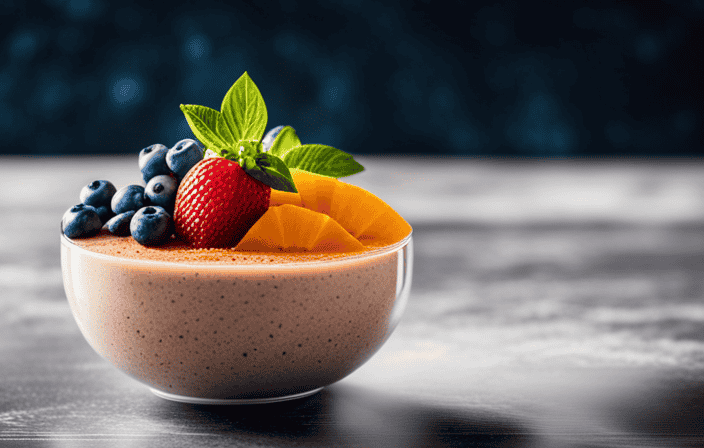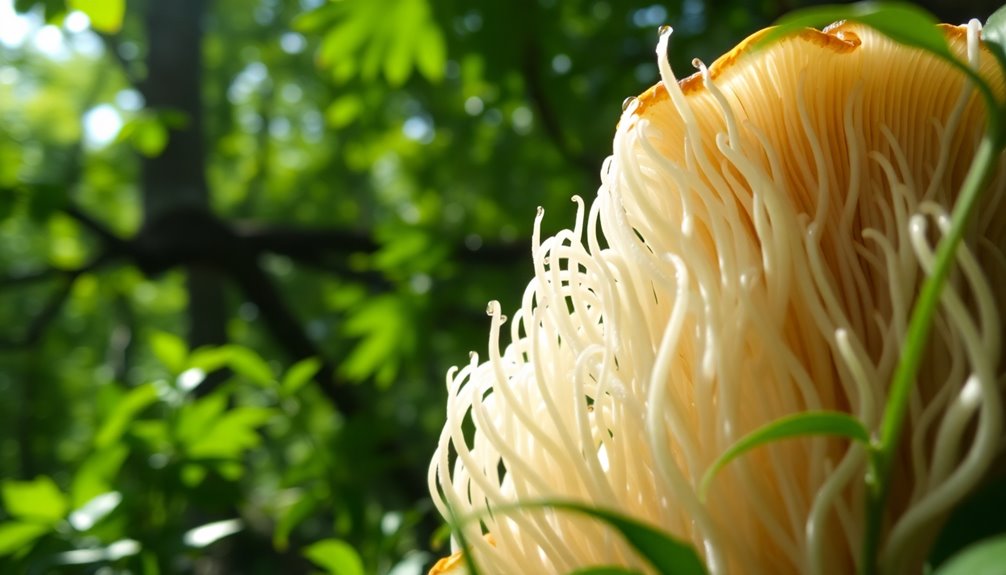Are you searching for a protein powder that can assist you in sustaining a healthy and active lifestyle? Plant-based protein powders are the perfect solution for you.
These powders are not only packed with essential nutrients, but they also offer a range of benefits for your body. From hemp protein powder, which provides fiber and omega-3 fatty acids, to pea protein powder, which is high in protein and fiber, there are plenty of options to choose from.
Join me as we explore the top vegan protein powders and discover how they can support your muscle building, weight management, and overall health goals.
Key Takeaways
- Plant-based protein powders offer a range of options including hemp, pea, brown rice, soy, and quinoa.
- Hemp protein powder is a complete protein with essential amino acids, and it is also a great source of fiber and omega-3 fatty acids.
- Pea protein powder is high in protein and fiber, low in fat, and a good source of iron and calcium. It can support weight management and muscle building.
- Soy protein powder and quinoa protein powder are popular choices that provide essential nutrients and support muscle building and weight management. They are also suitable for people with sensitivities or allergies.
Top Vegan Protein Powders
I’ve found that the top vegan protein powders, including hemp, pea, brown rice, soy, and quinoa, are excellent options for supporting muscle building, weight management, and overall health.
Hemp protein powder is a complete protein with essential amino acids, and it’s also a great source of fiber and omega-3 fatty acids.
Pea protein powder is high in protein and fiber, while being low in fat, and it’s a good source of iron and calcium.
Brown rice protein powder is a complete protein source that’s also rich in fiber and B vitamins.
Soy protein powder is popular and provides essential nutrients like iron and calcium, while being low in calories and fat.
Quinoa protein powder offers essential amino acids, fiber, and antioxidants, and it’s suitable for people with sensitivities or allergies.
Overall, these vegan protein powders are nutritious and great for those following a plant-based diet.
Hemp Protein Powder
With its complete amino acid profile and high fiber content, hemp protein powder is an excellent choice for those looking to support muscle building and maintain a healthy weight. Not only is it a complete protein source, but it also provides essential omega-3 fatty acids that are beneficial for heart health. Additionally, hemp protein powder is easy to digest, making it suitable for those with sensitive stomachs. Its fiber content helps promote digestion and supports weight management by keeping you feeling full for longer. To showcase the benefits of hemp protein powder, here is a table highlighting its nutritional profile:
| Nutrient | Amount per Serving |
|---|---|
| Protein | 20g |
| Fiber | 8g |
| Omega-3 Fatty Acids | 3g |
| Calories | 120 |
| Carbohydrates | 4g |
Incorporating hemp protein powder into your diet can be a great way to meet your protein needs while also reaping the benefits of its fiber and omega-3 content.
Pea Protein Powder
Pea protein powder is a great option for vegans like me who are looking for a high-protein, low-fat supplement that supports muscle building and weight management. Here are five reasons why I love pea protein powder:
-
High in protein and fiber: Pea protein powder contains around 20-25 grams of protein per serving, making it an excellent choice for those looking to increase their protein intake. It is also high in fiber, which helps with digestion and keeps you feeling full.
-
Low in fat: Unlike some other protein powders, pea protein powder is low in fat, making it a great option for those watching their calorie intake or trying to lose weight.
-
Good source of iron and calcium: Pea protein powder is rich in iron and calcium, two essential nutrients that are often lacking in a vegan diet. These nutrients are important for overall health and can help support bone health and prevent iron deficiency.
-
Supports weight management: Pea protein powder can help with weight management by increasing feelings of fullness and reducing appetite. This can be especially beneficial for those trying to lose weight or maintain a healthy weight.
-
Supports muscle building: Pea protein powder is a complete protein, meaning it contains all the essential amino acids your body needs for muscle building and repair. It is also easily digestible, making it a convenient and effective option for post-workout recovery.
In conclusion, pea protein powder is a fantastic plant-based option for vegans looking to support their muscle building and weight management goals. Its high protein and fiber content, low fat content, and abundance of iron and calcium make it an excellent choice for a fit and healthy lifestyle.
Frequently Asked Questions
What are some popular brands of vegan protein powders?
Some popular brands of vegan protein powders include Vega, Garden of Life, Orgain, Sunwarrior, and PlantFusion. These brands offer a variety of plant-based protein options that are suitable for those following a vegan or vegetarian lifestyle.
Can these plant-based protein powders be used as a meal replacement?
Yes, plant-based protein powders can be used as a meal replacement. They are rich in nutrients, provide essential amino acids, and support muscle building and weight management. However, it’s important to consult a healthcare professional for personalized advice.
Are there any potential side effects or allergies associated with these vegan protein powders?
There are potential side effects and allergies associated with vegan protein powders. Some people may experience digestive issues like bloating or gas. Allergies to ingredients like soy or hemp can also occur.
How do these plant-based protein powders compare to whey protein in terms of muscle building and athletic performance?
Compared to whey protein, plant-based protein powders like hemp, pea, brown rice, soy, and quinoa provide similar benefits for muscle building and athletic performance. They are rich in essential amino acids and support weight management, making them a great choice for athletes and fitness enthusiasts.
Are there any recommended serving sizes or guidelines for consuming these vegan protein powders?
For optimal results, it is recommended to follow the serving sizes and guidelines provided by the specific vegan protein powder brand. Generally, it is advisable to consume 20-30 grams of protein powder per serving, mixed with water or plant-based milk.
Conclusion
In conclusion, plant-based protein powders are a fantastic choice for anyone seeking a fit and healthy lifestyle. These powders offer a range of benefits, from complete protein with essential amino acids to high fiber content and omega-3 fatty acids. They support muscle growth, weight management, and overall health.
With options like hemp, pea, brown rice, soy, and quinoa protein powder, there is something for everyone. So, why not fuel your body with these powerful plant-based proteins and watch your fitness journey bloom like a vibrant garden?









